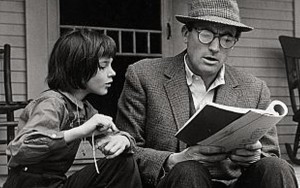The South is something you carry with you no matter where you go. Or how far you travel from it in mind and body. Even if for no other reason than the fact that I stand up always when an older person enters a room, I know I’m southern.
Louisiana was where I was born and reared after all, and even though I pretty much lost most of my southern accent on purpose, married a Yankee and had a son born on the Upper East Side, I still knew I was southern.
Southern women who are aspiring writers often end up moving to New York. And then writing about their early lives in small southern towns. Flannery O’Connor, Carson McCullers, Harper Lee, Kathryn Stockett all moved to New York and wrote about the South.
“When you live in New York, you often have the feeling that New York’s not the world. I mean this: every time I come home, I feel like I’m coming back to the world, and when I leave Maycomb it’s like I’m leaving the world. It’s silly. I can’t explain it, and what makes it sillier is that I’d go stark raving living in Maycomb.” — Go Set A Watchman

These writers write about young adult women coming home after being away, as I did about the character Mary Jacob Ascher in my most recent novel Lavina. Scout Finch makes the journey home to Atticus on a train, Mary Jacob makes the journey home to Jack Long on a plane. City turns to suburbs turns to farmland, and then there you are on your parents’ doorstep, all the ghosts of your past tucked away in your childhood room.
“… it left me with a good feeling, like a pebble tossed in a pond, a rippling of happiness. I almost never felt this way in real life… it was as though the words themselves were imprinted in my brain, the same place where music and poetry lived: nothing can hurt you here; here you are safe. And that place seemed to be where I was heading, suitcase in hand.” — Lavina
Southern Women Write About Going Home, while the Men Leave Home
Like Skeeter in The Help, like Scout Finch in Go Set A Watchman, and very likely like all these authors themselves, the adult girl child returning home sees her parents and her southern community differently. She sees the injustices covered over by sweet southern accents. She feels outside of the group, immune to the blinding, muting effect of southern tradition and the tug of peer pressure after having been a peer elsewhere, to another group of cohorts.
Men’s stories often start when they leave home. They go out into the world, adventuring, conquering, and getting to know themselves deeper. These female characters have stories that start when they come home and see they no longer fit where they once did. The neighborhood where they grew up, racist as it may be, and the family who reared them, flawed and selfish and scared—that is their stage for self actualization and reinvention.
Can You Ever Really Go Home?
I paid a visit to Louisiana some years ago. And that visit changed my life. I had already re-invented myself. I was already a mother, in fact I had gone through a couple of different lives by that point. But I cried for several months after I got home, thinking about my Uncle Tom, a friend of the family who took me to dinner at the most exclusive private club in town. During my visit, he talked about the Jews; he talked about the blacks, the black problem in Louisiana. He talked about women’s libbers, and asked me if I was one of them. He talked about the Jews again. He talked about the Jews so much I felt obliged to remind him that I was Jewish.
“But you’re not one of those kind of Jews, honey. And neither was your Mama.”
I wondered how my mother lived such a life where she was hiding all the time. Worried about being one of those Jews. These were her best friends!
I haven’t been in any hurry to book another ticket home.
When you do go home after moving away, you see things differently. The past, L.P. Hartley says, is another country, “they do things differently there.”
I wrote Lavina last year. I wanted to write about the South, about race, and about what it feels like to come home after leaving. I’m clearly in good company.



